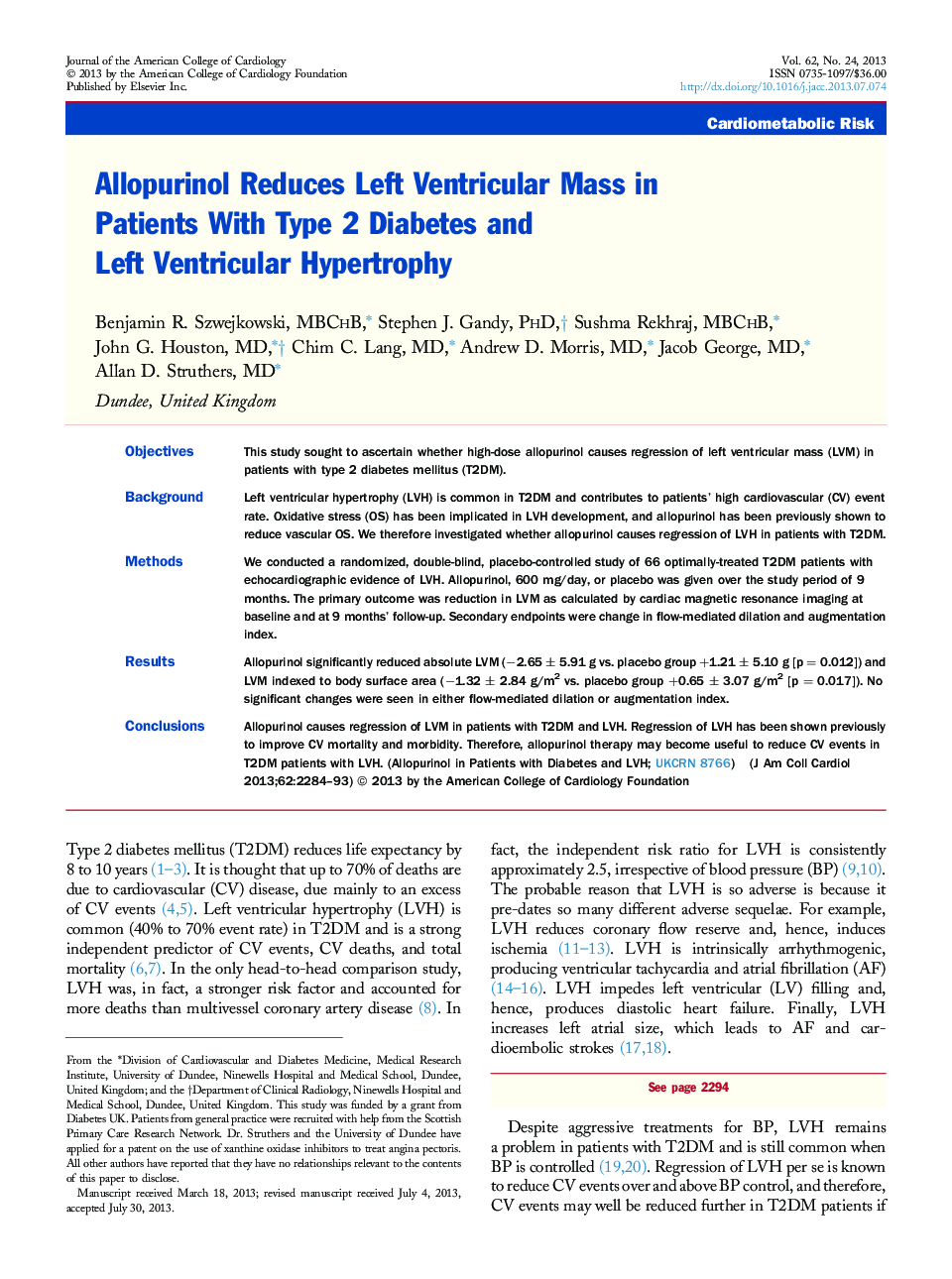| Article ID | Journal | Published Year | Pages | File Type |
|---|---|---|---|---|
| 2945183 | Journal of the American College of Cardiology | 2013 | 10 Pages |
ObjectivesThis study sought to ascertain whether high-dose allopurinol causes regression of left ventricular mass (LVM) in patients with type 2 diabetes mellitus (T2DM).BackgroundLeft ventricular hypertrophy (LVH) is common in T2DM and contributes to patients' high cardiovascular (CV) event rate. Oxidative stress (OS) has been implicated in LVH development, and allopurinol has been previously shown to reduce vascular OS. We therefore investigated whether allopurinol causes regression of LVH in patients with T2DM.MethodsWe conducted a randomized, double-blind, placebo-controlled study of 66 optimally-treated T2DM patients with echocardiographic evidence of LVH. Allopurinol, 600 mg/day, or placebo was given over the study period of 9 months. The primary outcome was reduction in LVM as calculated by cardiac magnetic resonance imaging at baseline and at 9 months' follow-up. Secondary endpoints were change in flow-mediated dilation and augmentation index.ResultsAllopurinol significantly reduced absolute LVM (−2.65 ± 5.91 g vs. placebo group +1.21 ± 5.10 g [p = 0.012]) and LVM indexed to body surface area (−1.32 ± 2.84 g/m2 vs. placebo group +0.65 ± 3.07 g/m2 [p = 0.017]). No significant changes were seen in either flow-mediated dilation or augmentation index.ConclusionsAllopurinol causes regression of LVM in patients with T2DM and LVH. Regression of LVH has been shown previously to improve CV mortality and morbidity. Therefore, allopurinol therapy may become useful to reduce CV events in T2DM patients with LVH. (Allopurinol in Patients with Diabetes and LVH; UKCRN 8766)
